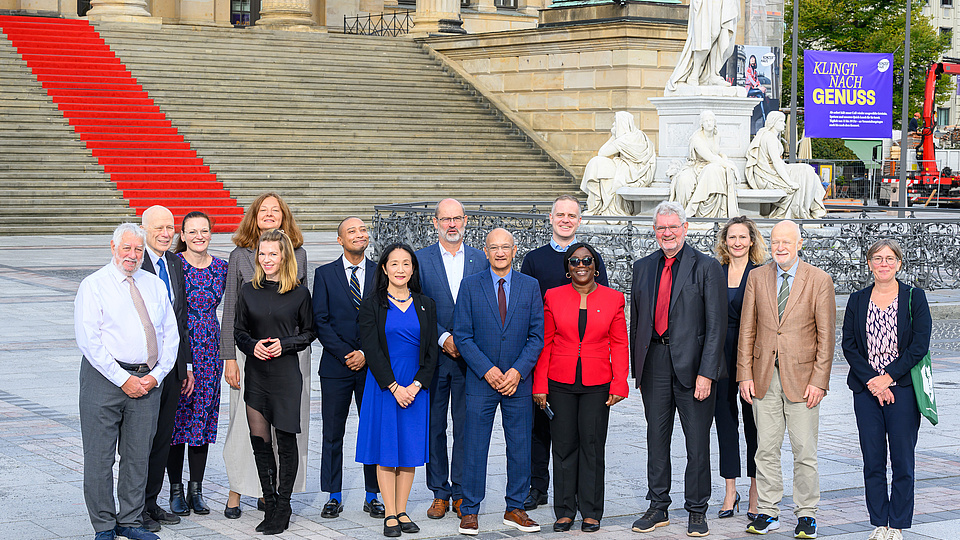Jump to the content
- {{#headlines}}
- {{title}} {{/headlines}}
E. William Colglazier
E. William Colglazier is Editor-in-Chief of Science & Diplomacy and Senior Scholar in the Center for Science Diplomacy at the American Association for Advancement of Science. He works to advance knowledge and practice on science policy and diplomacy and to support international scientific collaboration. From 2016 to 2018 he co-chaired the group appointed by the UN Secretary General to advise on science, technology, and innovation for achieving the 17 Sustainable Development Goals. He served as Science and Technology Adviser to the Secretary of State for three years. As Executive Officer of the National Academy of Sciences and National Research Council for seventeen years, he oversaw the studies that provide independent, objective scientific advice on public policy issues. He received his Ph.D. in physics from Caltech, and subsequently worked at the Stanford Linear Accelerator Center, Institute for Advanced Study in Princeton, Center for Science and International Affairs at Harvard’s Kennedy School of Government, and University of Tennessee. Awards include the Joseph A. Burton Forum Award for “outstanding contributions to the public understanding or resolution of issues involving the interface of physics and society” and Order of the Rising Sun for “contributing to science and technology exchange and mutual understanding between Japan and the United States.”
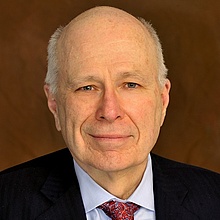
Areas of expertise: science policy, science diplomacy, international scientific and technological collaboration, physics
Wolf B. Frommer
Wolf B. Frommer, is an Alexander von Humboldt Professor at the Institute for Molecular Physiology and member of CEPLAS at Heinrich Heine University Düsseldorf. He also heads a group at the Institute for Transformative Biomolecules (ITbM) at Nagoya University, Japan. After completing his PhD at the University of Cologne, he moved to the Free University of Berlin, where he received his habilitation in 1994. As early as 1990 he became junior group leader at the Institute of Genebiological Research, Berlin, funded by the Ministry of Science and Technology. In 1996, he was appointed Full Professor in Plant Physiology at Tübingen University, and in 1997 was Founding Director of the Centre for Plant Molecular Biology (ZMBP). In 2003, he moved to Stanford, Calefornia, where he became Director of the Plant Biology Department of the Carnegie Institution for Science und Full Professor at Stanford University. Amongst other awards, he received the Gottfried Wilhelm Leibniz Prize in 1998, the Körber European Science Prize in 2001, and in 2018 the Tsungming Tu Award. Since 2015 he is a member of the Leopoldina - German National Academy of Sciences.
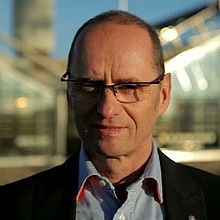
Areas of expertise: mechanisms of sugar transport, biosensor engineering, interorgan communication, crop yield, mechanisms of pathogen virulence and plant defense, genome editing and new technologies
Graham Hutchings
Graham Hutchings is Regius Professor of Chemistry at Cardiff University. He studied chemistry at University College London. His early career was with ICI and AECI Ltd where he became interested in gold catalysis. In 1984 he moved to academia and has held chairs at the Universities of Witwatersrand, Liverpool and Cardiff. He was elected a Fellow of the Royal Society in 2009, a Member of Academia Europaea, and a Founding Fellow of the Learned Society of Wales in 2010, a Fellow of the Royal Academy of Engineering in 2023 and an Honorary Fellow of the Chinese Chemical Society in 2023. He was awarded the Davy Medal of the Royal Society in 2013, the ENI Award for Advanced Environmental Solutions in 2017, a CBE in 2018 and the Michel Boudart Award in 2021. He has over 950 research papers.
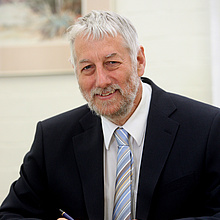
Areas of expertise: heterogeneous catalysis, gold catalysis, materials science, net zero policy
Duane Jethro
Duane Jethro is a Senior Lecturer in the Department of African Studies and Linguistics at the University of Cape Town. He specialises in the analysis of the cultural construction of heritage, contested public cultures and material religion. He was an Alexander von Humboldt Foundation Georg Foster post-doctoral research fellow and served as chair of the selection committee of the German Chancellor Fellowship Programme for Prospective Leaders from South Africa, also run by the Alexander von Humboldt Foundation. Additionally, he serves as an editor of the journal Material Religion and serves on the editorial board of the journal Museums and Social Issues. He is an executive board member of the Association of Critical Heritage studies, and edits the association blog Currents in Critical Heritage Studies. His book Heritage Formation and the Senses in Post-Apartheid South Africa: Aesthetics of Power is published by Bloomsbury Academic.
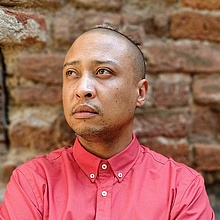
Areas of expertise: cultural heritage, public culture, material religion, South Africa, Germany
Sabine Maasen
Sabine Maasen is Professor of Science Studies and Innovation Research as well as Academic Director of the Knowledge Exchange Agency at the University of Hamburg. She completed her doctorate and habilitation in sociology at Bielefeld University and worked at the Center for Interdisciplinary Research (Bielefeld) and the Max Planck Institute of Psychiatry (Munich) before accepting an appointment as Professor for Science Research/Sociology of Science at the University of Basel in 2001. From 2013 to 2020, she held the Chair of Sociology of Science (Liesel Beckmann Distinguished Professorship) at TUM Munich and was Director of the Munich Center for Technology in Society. Amongst many other positions, Sabine Maasen is a former member of the Scientific Commission of the German Council of Science and Humanities as well as the Lower Saxony Scientific Commission and continues to play an active role in both.
As a sociologist (of science), Sabine Maasen explores the relationship between science and society, especially the evidence relationship between societal (including political, media and economic) action, the democratisation of science and the dynamics of innovation and legitimation. She focusses on the one hand on reflective research and teaching and, on the other, on processes and formats for active participation. Moreover, she conducts research both in science and technology studies (STS) and in higher education.
Sabine Maasen’s research work addresses, firstly, new forms of socially-responsible knowledge production (interdisciplinarity, transdisciplinarity, co-creation), secondly, the correlation between accelerated innovation activities and the social legitimacy of research and higher education (a new social contract with science; third mission) and, thirdly, science and technology related aspects of self- and third-party-governance of the body (neurogovernmentality, social robotics).
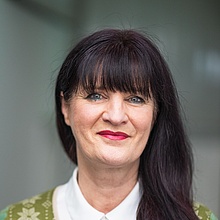
Areas of expertise: shaping and reflecting on science-society relations, establishing and profiling third mission at universities, co-creation in and beyond research
Elisabeth Malsch
Elisabeth Malsch is an expert in structural analysis and design, with specializations in investigative projects. She is proficient in static, dynamic and nonlinear analysis and the evaluation of buildings, temporary structures, and mechanical systems under the effects of typical to extreme loads. In addition to serving on Thornton Tomasetti's board of directors and as co-leader of our Forensics practice, Elisabeth is a member of the leadership team that oversees the firm’s research and development program. As part of this initiative, she was one of the lead developers of Hummingbird Kinetics, a fluid harmonic damper for tall and supertall buildings that was based on NASA technology. Elisabeth is a frequent lecturer, speaking on topics that range from technical innovation to improving diversity in the field of engineering.
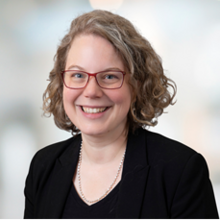
areas of expertise: engineering mechanics, structural design and investigation, forensic analysis.
Oluwatoyin Odeku
Professor Dr Oluwatoyin Odeku is a Professor of Pharmaceutics and the former Dean of the Faculty of Pharmacy, University of Ibadan, Nigeria. She is a 2006 Georg Forster Research Fellow at the Martin Luther University of Halle-Wittenberg. She returned to Bonn for a research group linkage from 2011 to 2014 and is currently cooperating with colleagues at the University of Potsdam. She is a recipient of the 2021 Humboldt Alumni Award for innovative networking initiatives where she is undertaking a structured mentoring programme for women in academia across Nigeria. She is the Humboldt Ambassador Scientist in Nigeria. Odeku is also a Fellow of the Nigerian Academy of Science and the Nigerian Academy of Pharmacy.
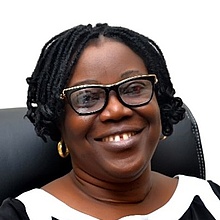
Areas of expertise: pharmaceutics
Faith Osier
Faith Osier trained as a paediatrician in Kenya, specialized in immunology in Liverpool, and obtained a PhD from the Open University in the UK. She is Chair of Malaria Immunology and Vaccinology in the Faculty of Natural Sciences at Imperial College London where she also serves as the Co-Director of the Institute of Infection. She previously led two cross-continental research teams in Kenya and Germany with a vision to “Make Malaria History” through vaccination. Her work focuses on vaccine candidate discovery, the identification of correlates of protection and the mechanisms that underpin protective immunity. She also aims to inspire and support the next generation of African scientists to provide the solutions that the continent urgently needs. Her work has led to international honors and prizes, including the Royal Society Pfizer Prize, the Sofja Kovalevskaja Award, and an UKRI African Research Leader Award. She is a TED Fellow, an EDCTP Senior Fellow, EMBO member and an official #TOGETHERBAND Ambassador for the United Nations Global Goal 3. Faith is the Past President of the International Union of Immunological Societies (IUIS) and was awarded the prestigious British Society for Immunology Lifetime Honorary Membership Award in 2022.
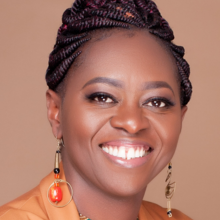
Areas of expertise: malaria, immunity, vaccines, African scientists, capacity building
Daya Reddy (Chair)
Daya Reddy is Professor Emeritus of Applied Mathematics at the University of Cape Town (UCT), and previously held the South African Research Chair in Computational Mechanics there. Until July 2024 he served as interim Vice-Chancellor (equivalent to President) of the University of Cape Town. Following undergraduate studies in civil engineering at UCT, a Ph.D. at Cambridge University, and a postdoctoral year at University College London, he returned to UCT to take up an academic position, later serving a seven-year term as Dean of the Faculty of Science. Professor Reddy’s research interests lie in mathematical modelling, analysis and computation in solid mechanics, with applications in material science and biomedical mechanics. He has served as President of the Academy of Science of South Africa, and was the inaugural president of the International Science Council (ISC) over the period 2018 – 2021. Daya Reddy has received the Award for Research Distinction of the South African Mathematical Society, and the national Order of Mapungubwe. He is a Fellow of the International Association for Computational Mechanics, and a recipient of the Georg Forster Research Award from the Alexander von Humboldt Foundation.
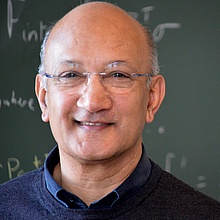
Areas of expertise: higher education and scholarship, science for society and policymakers, policy for science, scientific cooperation
Robert Schlögl
In January 2023, the chemist Robert Schlögl became the new president of the Alexander von Humboldt Foundation. After studying chemistry and gaining his doctorate in Munich, Robert Schlögl worked as a postdoc in Cambridge and then in Basel before completing his habilitation in Berlin. In 1989, he became a professor at Goethe University Frankfurt. Five years later, he was appointed director of the Fritz Haber Institute in the Max Planck Society, Berlin. Until 2022, he was the founding director and subsequently, the managing director of the Max Planck Institute for Chemical Energy Conversion in Mülheim an der Ruhr as well as director of the Fritz Haber Institute in Berlin until 31 March 2023.
Schlögl is an internationally renowned and connected scientist with a research focus on energy conversion processes and catalysis; his work has contributed to a new understanding of catalytically active materials. In his capacity as an expert on the energy systems of the future and the complex challenges involved in the energy transition, he is also a highly sought-after and experienced policy and science communication advisor.
In addition to conducting research, Robert Schlögl is active both nationally and internationally in many advisory and consultative bodies. He is Vice-President of the German National Academy of Sciences Leopoldina and a member of several other academies, such as the Royal Society of Chemistry in London.
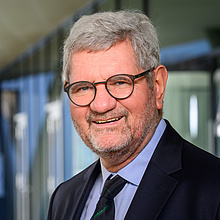
Areas of expertise: energy conversion processes, catalysis, sustainable energy systems
Tatiana Shchyttsova
Tatiana Shchyttsova is Professor at the Department of Social Sciences of the European Humanitites University in Vilnius. EHU is a Belarusian university in exile, closed by the authorities in 2004 in Minsk. She studied philosophy and completed her PhD at the Belarusian State University. In 2008, she received her habilitation from the Russian State University for the Humanities in Moscow. For more than 20 years, she headed the Center for Philosophical Anthropology at EHU. In 2020, the Center was renamed Center for Research of Intersubjectivity and Interpersonal Communication to emphasise its transdisciplinary profile. She is the founder and editor-in-chief of the journal for philosophy and cultural studies Topos (published since 2000). Tatiana Shchyttsova has received numerous international research fellowships, including the Alexander von Humboldt Foundation Fellowship, and has given a number of guest lectures at various European academic institutions (among them the Institute for Human Sciences in Vienna, the University of Freiburg i. B., the University of Helsinki and others). From 2009 to 2011 she held the position of Head of the Division for research at EHU. In 2009, Tatiana Shchyttsova was awarded the Solomiya Pavlichko Prize by the American Council of Learned Societies for her contribution to the development of the ACLS Humanities Program in Belarus, Russia, and Ukraine. She was President of the International Association for the Humanities (MAG) from 2018 to 2022. She has been a member of the expert commission of the Annual Publication Competition for Belarusian scholars for many years. In October 2021, Tatiana Shchyttsova was appointed Adviser on education and science to the President-elect of Belarus Sviatlana Tsikhanouskaya.
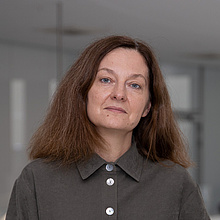
Areas of expertise: philosophy
Kanako Takayama
The legal scholar Kanako Takayama is one of Japan's most respected law experts. She is recognised as a pioneer in research on international and European criminal law.
Kanako Takayama has been a full professor at the Faculty of Law at Kyoto University in Japan since 2005. After studying law at the University of Tokyo, she began her professional career there as a research assistant in 1993. She then became a lecturer at the Faculty of Law, Seijo University, in 1996. She was subsequently granted a Humboldt research fellowship which took her to the University of Cologne where she worked as a visiting scholar from 1998-2000. Following this she was an associate professor at the Faculty of Law at Seijo University before switching to Kyoto University in 2002.
In addition to conducting research, Kanako Takayama is also involved in social matters. She supports women's rights and has repeatedly taken a public stand on current affairs in Japan, such as in her capacity as an expert in connection with the drafting of guidelines for stem cell research or regulations of business activities.
In 2006 she received the Cross of the Order of Merit of the Federal Republic of Germany. In 2017 she became the youngest scholar in the field of the humanities and social sciences to be appointed to the Science Council of Japan to date. In addition, she is the first woman to serve on the Executive Board of the Criminal Law Society of Japan.
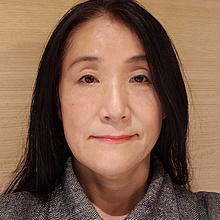
Areas of expertise: commercial criminal law & liability of the legal system
Johannes Vogel
Johannes Vogel is Director General at the Museum für Naturkunde, Leibniz Institute for Evolution and Biodiversity Research and Professor for Biodiversity and Public Science at the Humboldt-Universität zu Berlin. He received his doctorate in genetics from the University of Cambridge, subsequently worked at the Natural History Museum in London and took up his Berlin appointments in 2012.
He is President of the European Citizen Science Association, Trustee of the Falling Walls Foundation and advised the European Commission (Chair & member Open Science Policy Platform) and several German Governments (e.g. Bioeconomy Council, High-tech Forum, scientific co-chair of German Science year 2022 ‘Any Questions’). His interests are democracy and innovation, the role of museums in science and society, public engagement with science, open science, science policy and nature. For his contributions to science and society he has been awarded the Cross of Merit of the Order of Merit of the Federal Republic of Germany and the Order of Merit of the State of Berlin. In 2010 he was elected Fellow of AAAS and is the recipient of the 1996 Strasburger Prize .
With a natural history collection of over 30 million objects and some 150 scientific staff, the museum is one of the largest research museums in the world. The Museums vision is to promote scientific and social dialogue in order to foster action for nature and democracy. Some 60% of its over 800,000 annual visitors are young adults.

Area of expertise: biodiversity and public science
